| Ebborn Law's principal lawyer, Erin Ebborn, recently participated on a panel discussion entitled "Women in the legal profession", as part of UC's Gender and the Law class. The course provides an introduction to feminist legal theory and areas of law that raise gender issues. Ebborn Law has been a leader in the profession, being an early signatory to the United Nations Women's Empowerment Principles. Over the life of the firm there has been a conscious effort to build a positive, inclusive culture. Erin Ebborn says that, being primarily a family law specialist, a majority of her lawyers have been female. "For some reason it's hard to attract males to the practise of family law," she says, "Yet there are some excellent male family lawyers out there... I'm not sure where our future lawyers are forming their gender perceptions and I think it's important some thought goes into that. It's a real shame." A concern Erin shares with many of her peers is the time it has taken the profession to start speaking publicly about the gender issues inherent in the sector. "Although over the past five years there has been a conscious effort by the New Zealand Law Society to address issues of equality and wellbeing, something I think the media has not given enough credit to in light of recent events." | "Change always takes time, sometimes it's generational, and we cannot expect attitudes to re-align immediately," says Erin. "However the profession has been put on notice: not only is there a growing move for change at the top, but up-and-coming lawyers and students are becoming more empowered. I strongly advise employers to pay close attention to the current discourse!" One positive action law firms can take immediately is to commit to the Law Society's Gender Equality Charter. The Charter is a set of commitments aimed at improving the retention and advancement of women lawyers. Charter signatories are asked to meet these commitments over a two-year period and report on progress to the Law Society. 'Push back' by senior partners and directors of law firms, reluctant to sign-up, is to be expected as the issues underlying the Charter are hurtful and raw, and nobody in the profession wants to believe that a Charter is necessary to ensure such basic human rights as equality and freedom from exploitation or sexual abuse. Thus, we are on a journey to create a better profession for all - there is not an instant fix. But change must start somewhere, and signing the Gender Equality Charter is a fantastic way to begin! |
|
0 Comments
Big thanks to the New Zealand Law Foundation, who were a key partner (along with SSPA) for this year's Family Law Workshop Series. They also wrote some really nice things about the workshops on their Facebook page - go here and see www.facebook.com/NZLawFoundation/.
I had the privilege to once again speak at the LawTechNZ Conference, held at the Pullman Hotel in Auckland. The subject: Technology and Justice. The points I made were possibly a bit sharp, a bit harsh... but the time for nanny-talk is almost over. Technology evolves. Businesses evolve. What makes anyone think that law firms can stay static?
There just wasn't the language for me to explain my frustration and alarm at the parlous state of New Zealand's legal sector. I have a clue or two about preparing for the unknown. I spent many years studying and supporting disaster preparedness efforts. I headed up a national organisation that focused on preparing communities. I spoke at international conferences on the subject of resilience. So please bear with me while I draw a couple of long bows and link the two concepts together. Firstly, the opposite of resilience is vulnerability: a state of stability characterised by extreme criticality and risk. Some people and organisations recognise when they are vulnerable, but many do not as it is simply too scary a thought. A lot of business managers still fly by the seat of their pants on a 'wish and a prayer'. But it only takes one major client to fail to pay on time, or a key staff member to leave, or the failure of a critical business system and it's sayonara to the company. Secondly, global change is coming your way soon: one of the big scary things that's on the horizon is the liberalisation of the legal profession. Australia, the UK and a number of countries have adopted laws that allow for non-lawyers to be directors or investors in law firms. The US considered it last year. Canada is pondering it. India and China are ruminating over it. Why wouldn't New Zealand follow suit? Now, the approach by most business managers who are scared of risk is to say "we'll deal with that when it happens". After all, the law change allowing ABS (Alternate Business Structure) companies in the UK happened in 2007, but the regulations didn't come into effect for five years after that. If we get five years to prepare, shouldn't that be enough? No. No. NO! The nature of competition is that it is exponentially easier to compete if you are at the front. Being in the middle, with the pack, is difficult, because you are fighting everyone for limited resources: external suppliers, the attention of the marketplace, capital, etc. Being at the end... well we all know what happens to companies that fail to compete in a changing marketplace. Rent a video at Blockbuster, anyone? How about posing for a Kodak moment? Both those companies were overtaken by a changing market. I predicted in my conference presentation (the slideshow is elsewhere in my profile) that we are fast heading into an era of digital apartheid - a separateness that will divide law firms who adopt new technologies and those who stick stubbornly to the past. Some of these latter firms will end up with absolutely no tech-savvy whatsoever, rendering them virtual tech beggars, having to rely on the kindness of others to prop-up their old technological ways. Technology is not so important for access to justice, as many say it is, but it is a new way of accessing the law. Law firms must get with the program because their up-and-coming customers expect this. Yet many law firms still do things the old way: fax machines, freeware, printing off emails!!! There has been a temporal implosion caused by the fast access to lawyers via email, txt message and online portals, and this is causing lawyers problems. The main problem? Lawyers are discovering that consumers demand answers now... not in three week's time (like in the old days). No longer do we need to wait for letters to be delivered. A virtual fear is emerging - a heightened anxiety experienced when using the World Wide Web by people who are not confident with technology, reducing the uptake of services delivered online or via app. Not everyone can afford a smart phone that is easy to use, or big enough to enable good access to online services so we are also seeing a barrier in the form of the cost of engaging. Not everyone can afford an internet connection. These people suffer because of this, as they do not engage in a way that makes it easy for the government and private business. Law firms need to get on top of this and stop being so techtarded: in other words, people and firms who not only are challenged by technology, they actively go out of their way to avoid learning how to use it, causing increased cost to society to accommodate them. I propose there is a new way to deliver law in New Zealand and we as a profession must adopt it with all haste. I call it the Facebook Business Model of Law and it means stopping the 'pick and choose' attitude toward clients; stopping believing that lawyers have some sort of mystique that sets them apart from other business people; leaving behind bricks-and-mortar, and; accepting clients of legal services regard the product with as much emotional attachment as if they were purchasing a soft drink. So, my conclusion in all this? Lawmageddon. The Four Partners of the Apocalypse are on their way: Ignorance, Fear, Tradition, Denial. The good news? It's not too late to start getting prepared. The New Zealand Law Society has some great practice notes on partaking in the digital age. There are plenty of young and feisty new lawyers out there who would love a chance to help a law firm to improve their use of technology. There is the LawTechNZ Conference and others like it, where you can meet a whole bunch of keen beans who are always willing to listen and help. The end is nigh, but it can be mitigated. If you start now.  Ebborn Law was a sponsor of the 2015 Arbitrators' and Mediators' Institute of New Zealand's (AMINZ) conference. Erin Ebborn attended and was impressed with the scope of practice and level of professional development the attendees exhibited. So impressed, in fact, that Ebborn Law is supporting an international conference run by AMINZ, being held in Queenstown at the start of March 2016. This very special conference will see the International Academy of Mediators conference with AMINZ. Network and learn with some of the world's leading commercial mediators. Confirmed as attending are some of the leading practitioners in the fields of mediation. Changes in the Care of Children Act in 2015 have seen a growth in alternative dispute resolution (ADR) in the family justice system. Ebborn Law recognised early on the benefit of ADR to children. Resolving disputes without Court involvement is a lot less stressful and costly. We are heavily invested in the Family Dispute Resolution (FDR) service, being the country's largest provider of the government-subsidised Family Legal Advice Service (FLAS). Ebborn Law has blazed a trail for other law firms by implementing VLaw: a client-focused genre of technology solutions that forms the DNA of the future of legal services. We currently can deliver this service over the World Wide Web to anyone with a smart phone or computer with internet connectivity. Read more about VLaw here.
Visit our Useful Info page for the information provided on the Family Justice System. We want to thank the participants for attending and engaging with us during the workshops, and SSPA for providing this opportunity to social services, and look forward to providing a number of workshops throughout the North Island in 2016.
Channel 9 Dunedin featured the workshop held at the Otago Museum on their news broadcast. Click here to view it online. STATEMENT BY THE CHIEF EXECUTIVE Ebborn Law wishes to express support for advancing equality between men and women to:
Therefore, we welcome the provisions of the Women’s Empowerment Principles – Equality Means Business, produced and disseminated by the United Nations Entity for Gender Equality and the Empowerment of Women (UN Women) and the United Nations Global Compact. The Principles present seven steps that business and other sectors can take toadvance and empower women. Equal treatment of women and men is not just the right thing to do – it is also good for business. The full participation of women in our enterprises and in the larger community makes sound business sense now and in the future. A broad concept of sustainability and corporate responsibility that embraces women’s empowerment as a key goal will benefit us all. The following seven steps of the Women’s Empowerment Principles will help us realise these opportunities: 1. Establish high-level corporate leadership for gender equality. 2. Treat all women and men fairly at work – respect and support human rights and nondiscrimination. 3. Ensure the health, safety and well-being of all women and men workers. 4. Promote education, training and professional development for women. 5. Implement enterprise development, supply chain and marketing practices that empower women. 6. Promote equality through community initiatives and advocacy. 7. Measure and publicly report on progress to achieve gender equality. We encourage business leaders to join us and use these Principles as guidance for actions that we can all take in the workplace, marketplace and community to empower women and benefit our companies and societies. We will strive to use sex-disaggregated data in our sustainability reporting to communicate our progress to our own stakeholders. On Behalf of the Director, Shareholders and
Employees of Ebborn Law  We had an exciting day in the office on Monday 15 June, 2015 as we launched VLaw™ to a diverse gathering of our stakeholders. Present were representatives from Ministry of Justice, Stopping Violence Services, Te Whare Hauora Refuge, Battered Women's Trust, Spark Business Hub, P&L Limited, Social Service Providers Aotearoa (SSPA) and Fairway Mediation. Andrew King, co-convenor of the LawTech Conference also dropped in. So what is VLaw™? It is a collection of proprietary systems and processes designed to enable people to access legal services over the World Wide Web. While only in the first stage of development, VLaw™ already has a broad array of components, including:
These components have been designed with the concept of a holistic, wrap-around service for clients: meeting their needs, not forcing the traditional ways of operating a law firm on them. Whilst innovative in a very traditional industry, VLaw™ will bring advantages to the profession as a whole. It has the potential to bring competitive advantages to law firms along with a number of wider benefits to external organisations and society, including:
This is merely the first stage of development for VLaw™. Future stages will see greater levels of access granted to clients to the firm’s database, meaning they will be able to access their own documents and collaboratively work on them with legal staff; an app that assists clients to keep tabs on appointments and Court dates, as well as negotiate and communicate in a safe way with the other party; full integration of JEMIMA with smart business equipment, and; enhanced networks of lawyers who could be employed on a full- or part-time basis from anywhere in New Zealand. VLaw™ will be a benchmark for new ways of delivering legal services in the 21st Century. Because of this we have a responsibility to ensure it is developed carefully, taking into account both the opportunities and threats potential new technologies offer. We particularly wish to thank Spark Canterbury Hub, Ricoh and P&L Ltd for their technical support, along with our social service partners who have contributed much to the development of VLaw™. Find out more about our ongoing innovations by clicking here. By Jarrod Coburn, CEO
Judge Harvey spoke on the confluence of technology and law. I found the notion that data isn't 'property', and the future of precedents and the common law versus a more rule-based system of justice, very interesting. Erin and I managed to chat with Judge Harvey afterwards about his recent publication that examined how the printing press changed law. His current project examines the other end of the scale: law as it is affected by the digital revolution.
Craig Columbus, CIO at Russell McVeagh, effectively convinced a rapt audience of the non-existence of privacy... a sobering concept considering the reliance firms have on information technology and the serious responsibility to protect the privacy of clients. Our technology partners P&L Limited represented at the conference along with CodeBlue, who are providing our new server suite. P&L promoted the JEMIMA practice management system that is being co-developed with us and will introduce a new level of service and efficiency to law. My presentation on challenging the way law is delivered in New Zealand received positive feedback. Many people told me afterwards they were pleased to see a law firm with such forward-looking ideas. You can read the paper by clicking the link below. LawTechNZ is a fantastic concept whose time is still to come. There is a strong commitment by EY (Ernst & Young) and E-Discovery Consulting to continue the conference. Judge Harvey expressed some disappointment afterwards at the low number of Auckland lawyers present, but I would go further and voice surprise at the number of law firms overall who sent staff: I feel this reflects a general lack of awareness of the fast-changing environment that lawyers are working in. I hope this does not mean frantic knee-jerking and hair-pulling when firms are forced into change. I hope that this conference and the people who support it succeed in their efforts to educate and prepare the profession for the future. I hope we see a managed progression that takes the best of the old and combines it with the exciting prospects of the new.
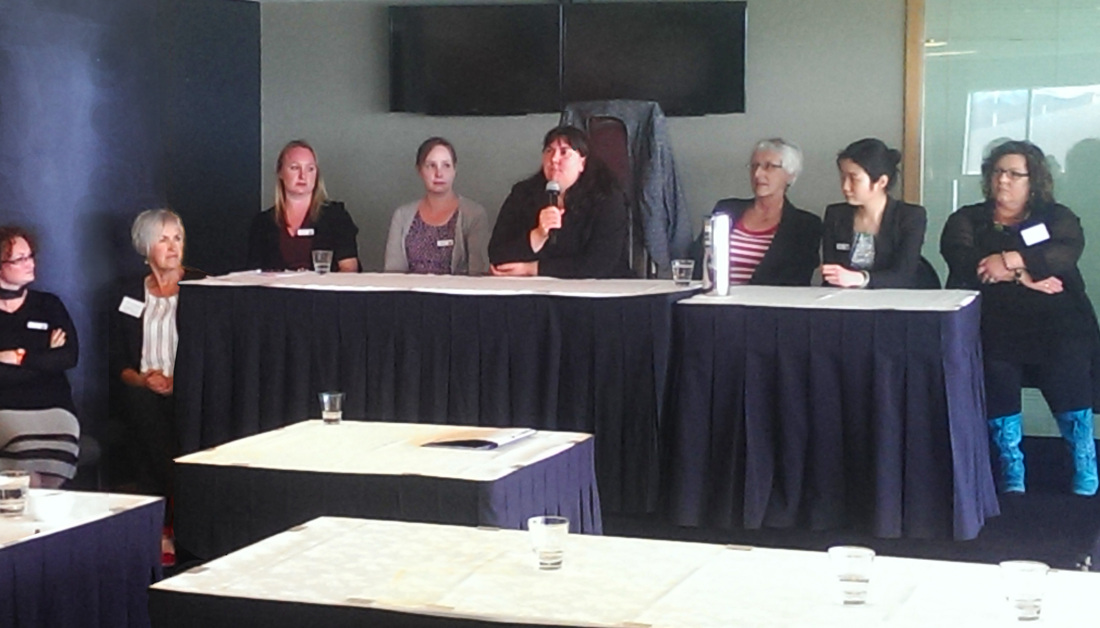 Panel of experts speaking from the makeshift Family Court room at Addington Raceway, where earlier there had been role-plays of an Issues Conference and a Directions Conference. Left to right: Kirsty Osprey, Jan Morrison (Fairway), Esther Jones, Claire Bennetts, Erin Ebborn, Sue Missen (PTS), Mei-Chien Huang, Bianca Tumai (Battered Women's Trust).
Who Attended?
A total of 123 attendees registered for the morning workshops and 33 for the afternoon workshop. In terms of gender 85% of attendees were female, 15% male. The bulk of morning attendees were from the NGO sector (70%) with two-fifths coming from Government (17%) and Commercial (13%). Most attendees (64%) worked with organisations who dealt with no specific target. Those who dealt with women (14%) were the next highest percentage, followed by families in general (8%) and Maori (7%). In the context of the social services workshop three-fifths of attendees worked for organisations dealing in domestic violence (22%), provided general social services (20%) or served children/parenting/families (18%). One-tenth of attendees worked for providers of mental health services.  Recent NGO seminar run by Ebborn Law Recent NGO seminar run by Ebborn Law Family Court reforms are coming: March 31st by the latest estimation. To help the community sector better understand the changes Erin and her team at Ebborn Law have held two seminars for the Canterbury social services sector that were very well attended. These seminars were an outstanding success, and we thank the community services and agencies who attended and contributed. We will be holding more seminars in March, prior to changes taking place, where we will be discussing the Family Court Rules and providing a more detailed assessment of the outcomes of the reforms. NOTES PROVIDED TO THE COMMUNITY - FAMILY COURT REFORMS
22nd & 23rd January, 2013 Disclaimer There are a lot of unknowns around these changes to the Family Court and the Care of Children Act. We have attempted to be objective and fair in our presentation of what we know and our assessment of risk. All criticism has been couched in constructive terms, in the knowledge that further information – when released by the Ministry of Justice – might clarify any gaps in knowledge. Family Dispute Resolution Service Summary:
The FDR process can be loosely described as follows:
Note that the funding for the legal advice (which is very limited in terms of lawyer time) can only be used once in a 12-month period. It’s unclear at this stage what the on-going the duty of lawyers are to clients funded in this way. Changes to the Care of Children Act First of all it's important to note that these changes don’t affect how the Court deals with: - Protection orders - Paternity matters - Child, Youth and Family matters - International child abduction cases - Other less common proceedings (e.g. adoption, spousal maintenance, child support) There is a focus in the legislation on participants self-representing – assisted by forms that applicants complete themselves (but pre-FDR means tested funding assistance means a lawyer can assist at this stage). If, in the following instances:
There are three different ‘tracks’ the applications can proceed through Court: simple, standard or without-notice: Simple track is for people who reach agreement at FDR and want an Order made by consent, or where the Court application is undefended – it is intended these cases are dealt with by a Judge based on the paperwork and people are expected to represent themselves (no lawyers in Court) unless the Judge directs a hearing. Standard track is the process that applies when people have not been able to reach agreement outside of Court. Applicants must have completed a Parenting Through Separation course within the two years prior to the application being made and have either completed the FDR process or have been excused from it. There will be an ‘issues conference’ with a Judge (lawyers aren’t involved – though a Lawyer for Child will attend if appointed at that stage) to assess the case. The Judge can direct a ‘settlement conference’ (lawyers only involved if allowed by the Judge), but if a Judge directs a hearing then lawyers will attend the hearing. Legal aid is only available where lawyers are permitted to attend Court. Where people are self-represented they may bring a support person in ‘some situations’ (not yet defined). Without-notice track is similar to the existing process where if there are safety concerns or urgent situations you can be represented by a lawyer and might be eligible for legal aid, and:
Note that matters filed before 31st March will continue as per normal, with legal aid in place if granted. The new role of lawyers in the Family Court There are some things that lawyers will be prohibited from doing:
However, (for a price, because legal aid won’t necessarily cover all of this) lawyers will still be able to:
|
AuthorThe team at Ebborn Law share interesting bits of information about Archives
June 2018
Categories |
||||||||||||||

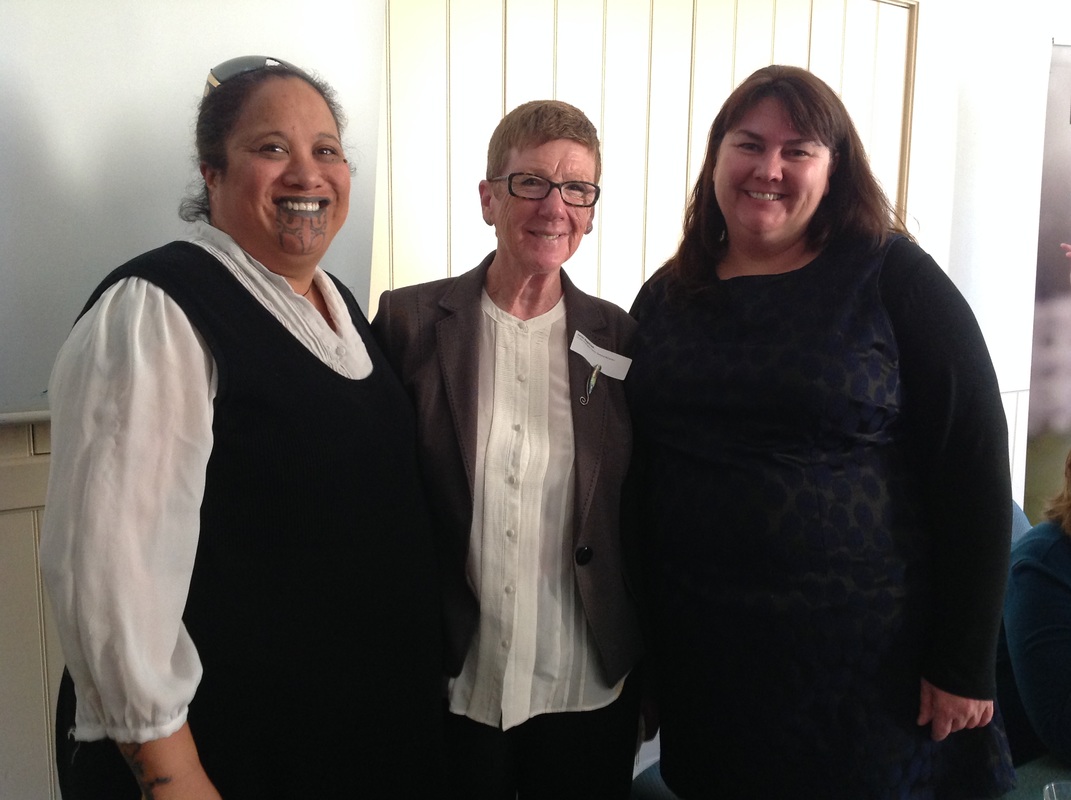


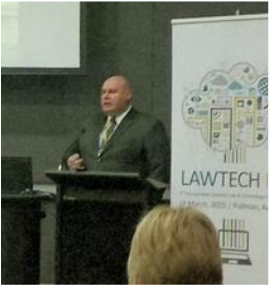
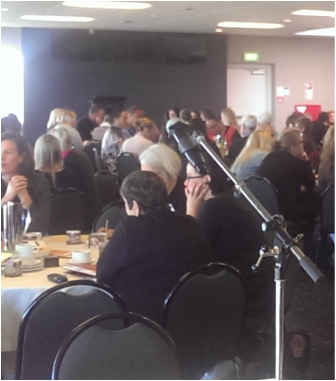
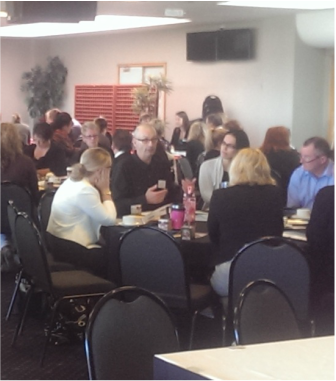
 RSS Feed
RSS Feed
